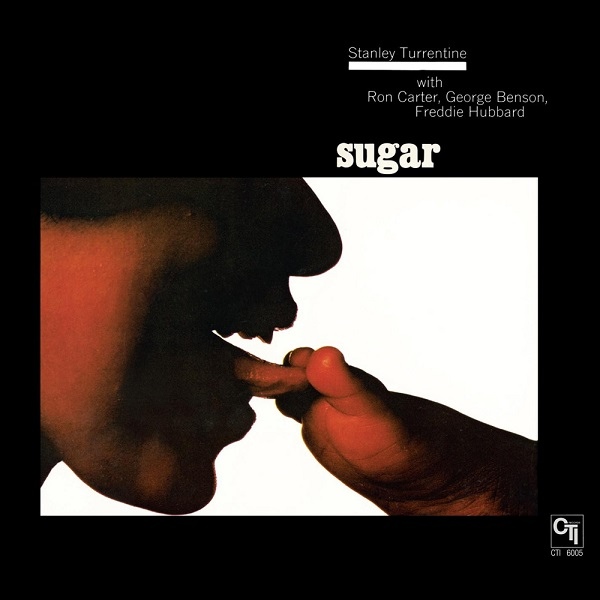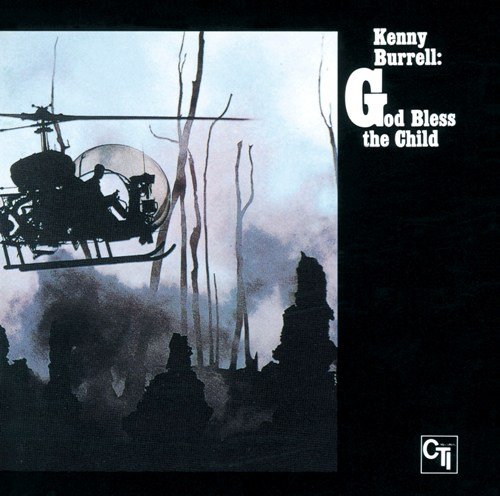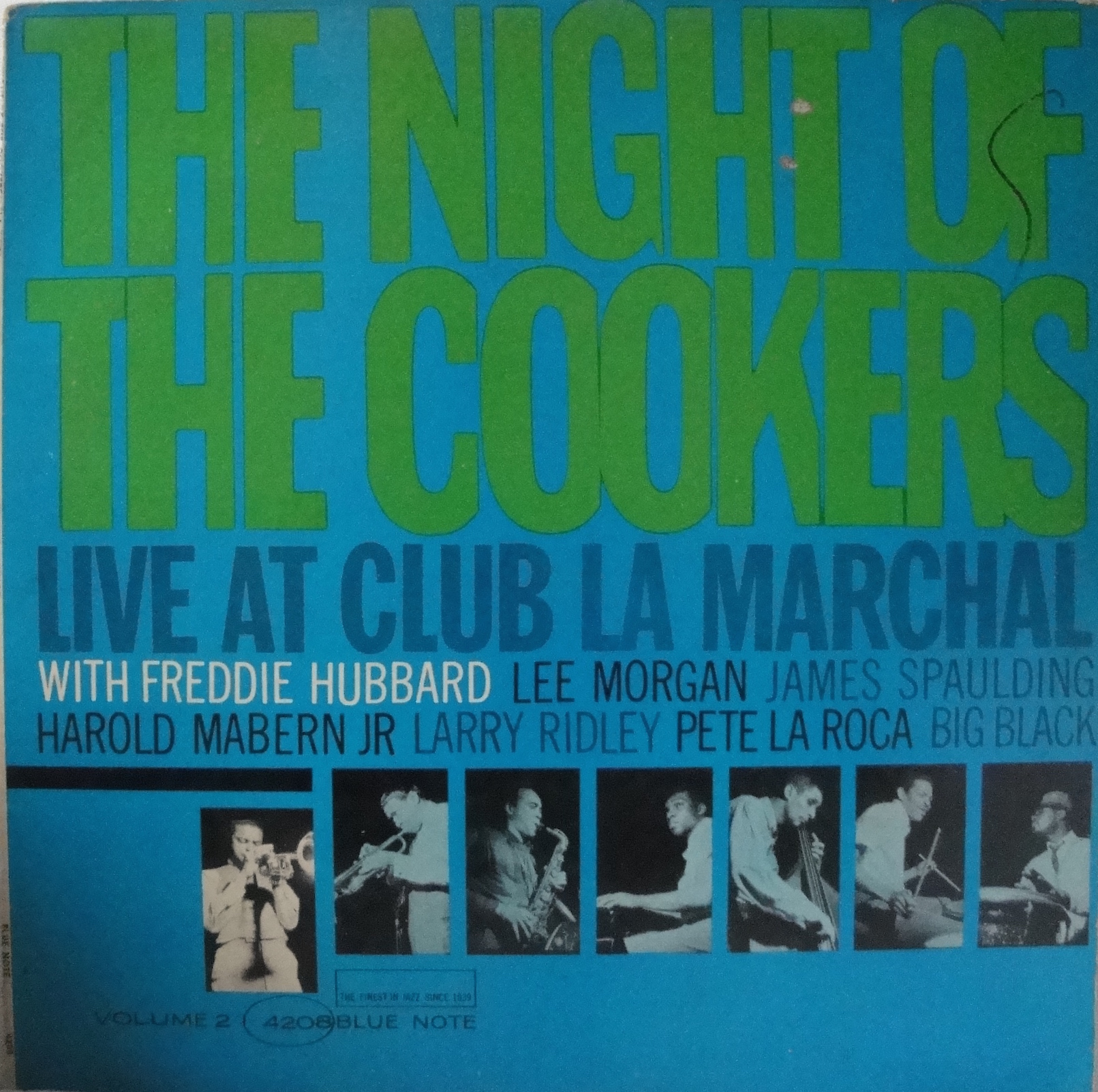Sugar, Stanley Turrentine’s first release on CTI, catapulted the tenorist into jazz stardom. It sold extremely well, in spite of its lenghty trio of tunes. A big part of the album’s mass appeal must be attributed to producer Creed Taylor. Taylor, also responsible for the big break of Jimmy Smith on Verve in the mid-sixties and George Benson on CTI in the early seventies, embedded Turrentine’s down-home hard bop style in streamlined jazz funk terrain. The result is a mixed bag.
Personnel
Stanley Turrentine (tenor saxophone), Freddie Hubbard (trumpet), George Benson (guitar), Ron Carter (bass), Lonnie Liston Smith (electric piano A1)), Butch Cornell (organ A2, B1), Billy Kaye (drums)
Recorded
on November 20, 1970 at Van Gelder Studio, Englewood Cliffs, New Jersey
Released
as CTI 6005 in 1971
Track listing
Side A:
Sugar
Sunshine Alley
Side B:
Impressions
Almost inevitably Taylor’s marketing strategies have as a consequence that something is lost. In this case, Turrentine’s smoky, blues-drenched sound and style; vintage Turrentine that is to be found on his many releases from the sixties, solo and with his wife, organist Shirley Scott on Blue Note and Prestige, and as a sideman with, among others, Jimmy Smith, Kenny Burrell and Max Roach.
On the whole, the all-star cast as well as newcomers Butch Cornell and Lonnie Liston Smith turn in top-notch performances and the mood is joyful and relaxed. The title track is a mellow groove. And even if Turrentine’s sound, in comparison to his ‘breathy’ sound of the sixties, is the musical equivalent of a silken scarf, his flowing, imaginative statements are proof of what a class act Turrentine is.
Latin tune Sunshine Alley, written by organist Butch Cornell, has an equally relaxed vibe. George Benson adds fiery, r&b-tinged licks to the flashy and pyrotechnical pallette of phrases that the guitarist demonstrated up until then. It’s a welcome change of mood. Hubbard’s solo starts with a climactic bunch of phrases, which obstructs a reasonable build-up. Turrentine seems contaminated and sounds a bit over-excited too.
The take on John Coltrane’s Impressions includes inventive solo’s by Hubbard and Benson and Turrentine’s lines are carefully crafted. Nonetheless, there is a decisive lack of swing that makes it hard to sit out. A couple of concise tunes on side B instead of the cumbersome version of Impressions would certainly have added to the attraction of Sugar, artistically and arguably also on a commercial level. Wouldn’t it have sold even better with a spicy side B?
Sugar is slick but excellent, not heartless but not really endearing either. It’s a commercial succes but in an artistic sense it’s nowhere near the best Blue Note albums by Stanley Turrentine.


